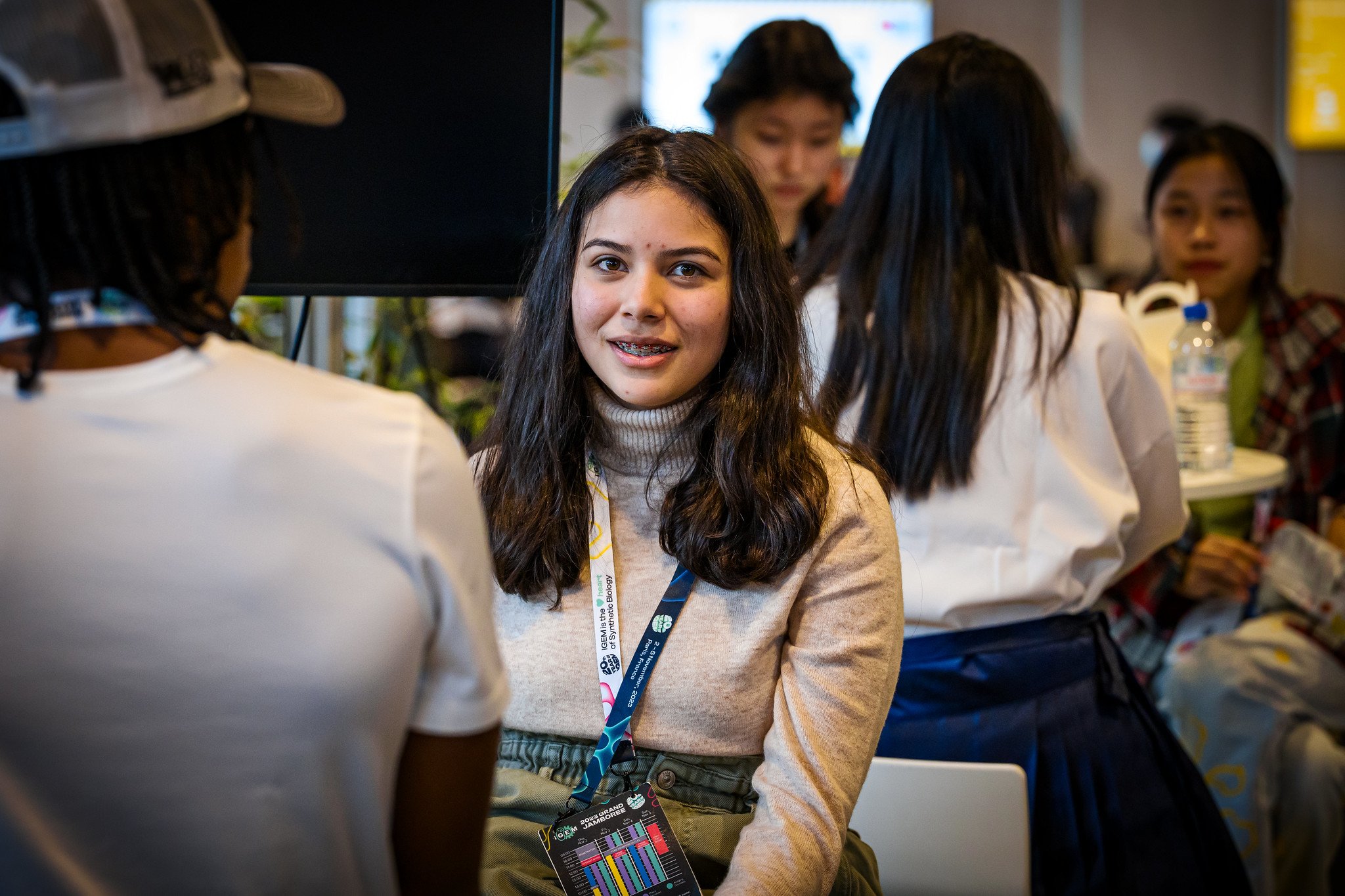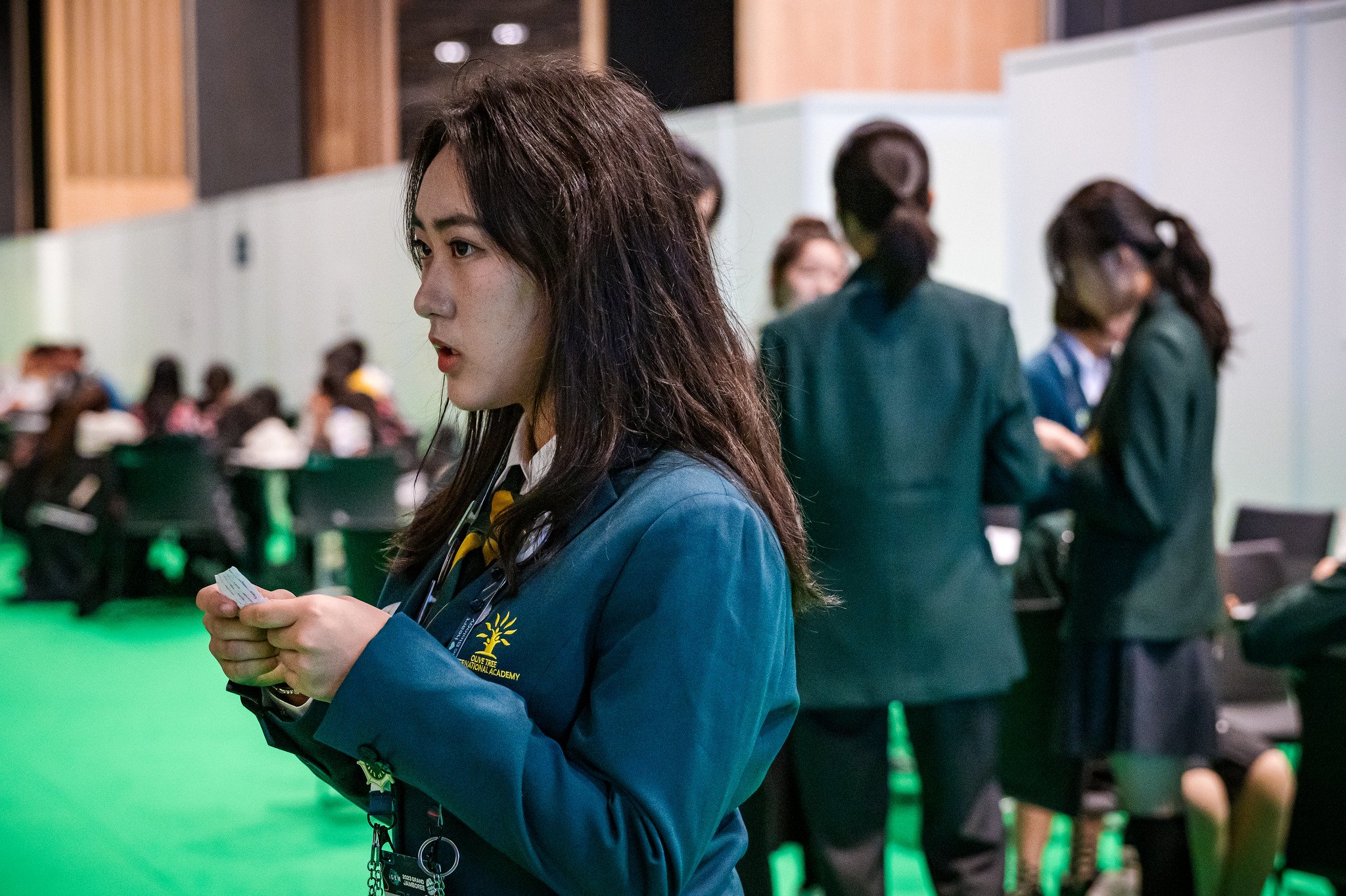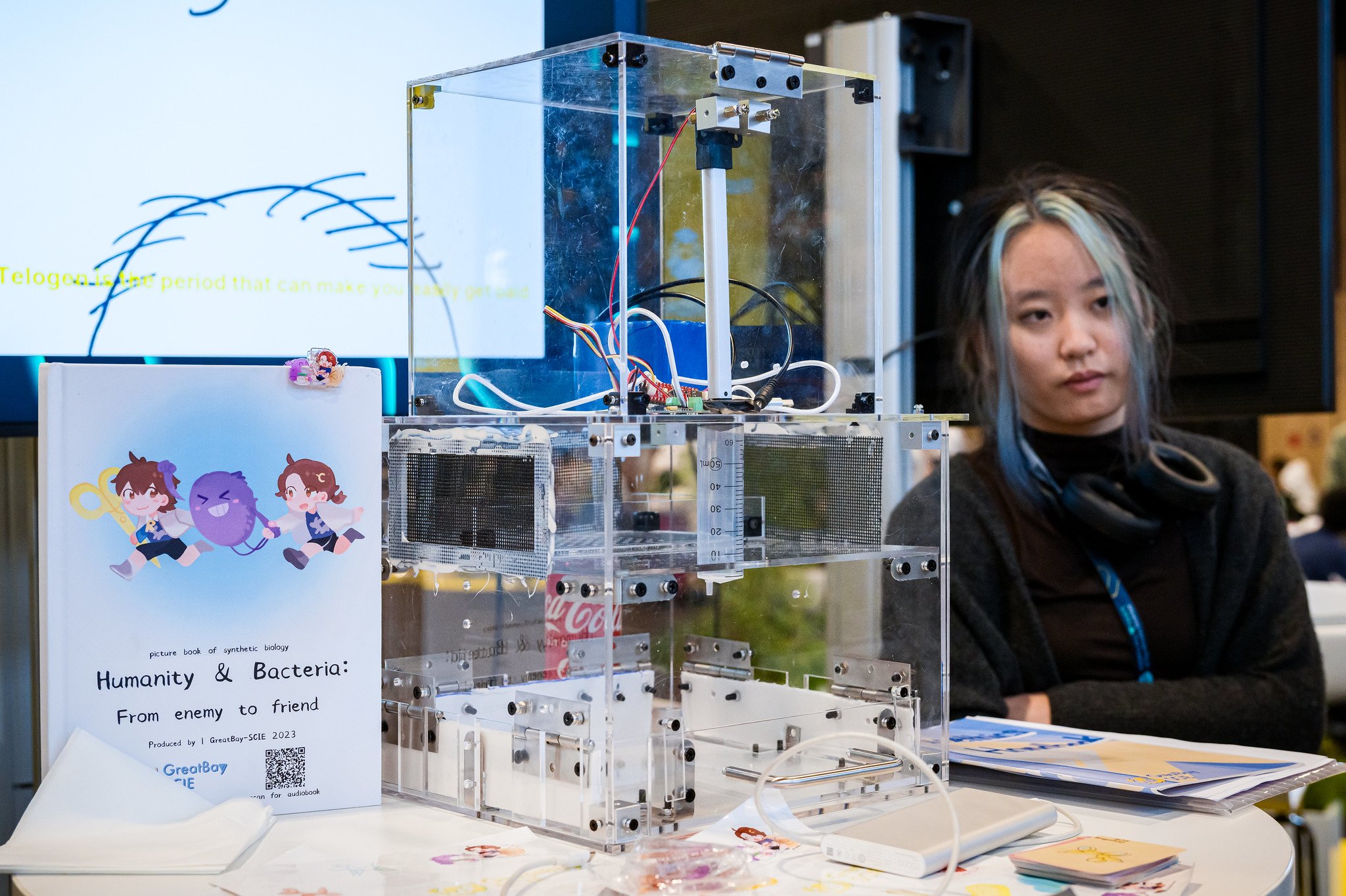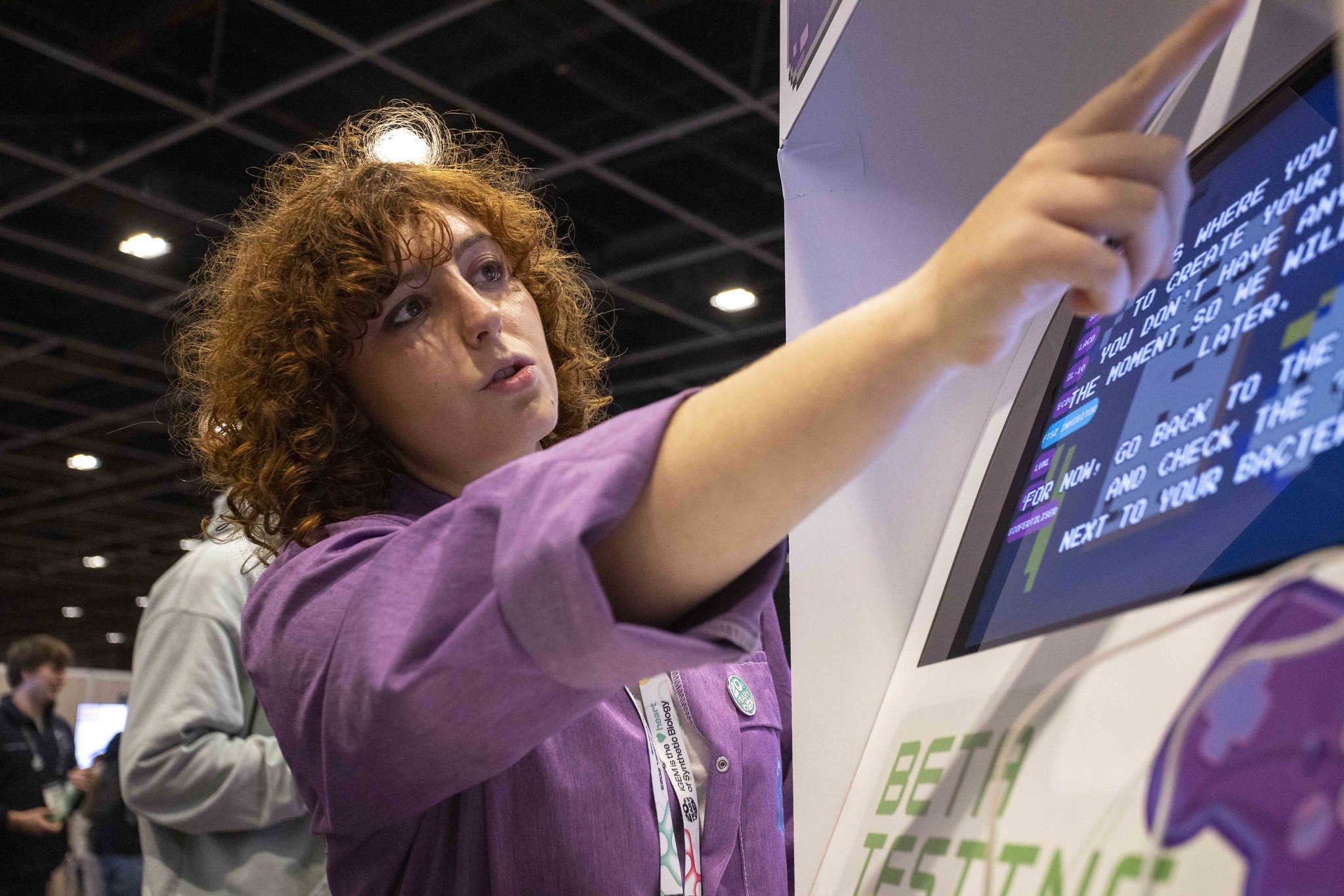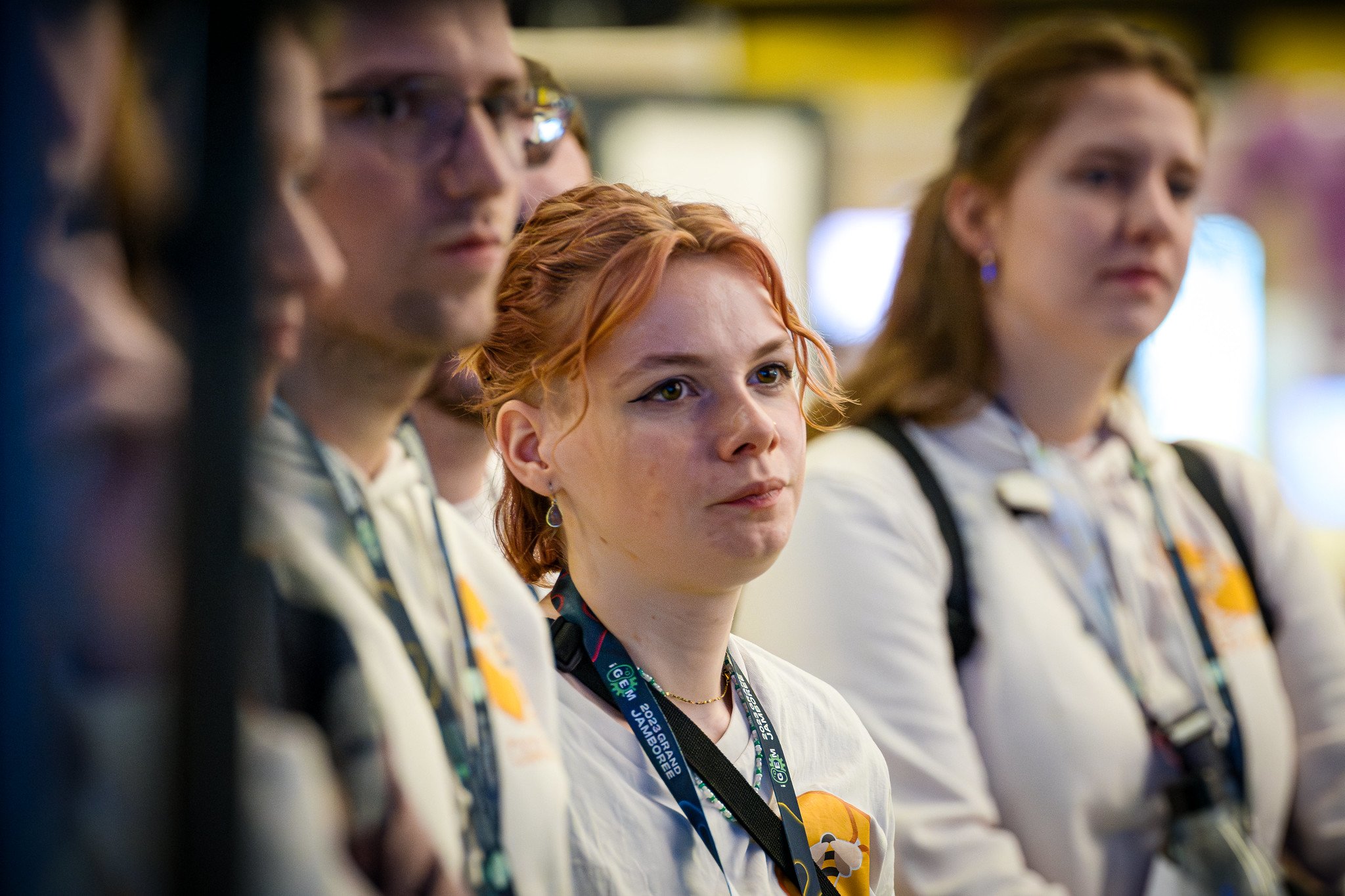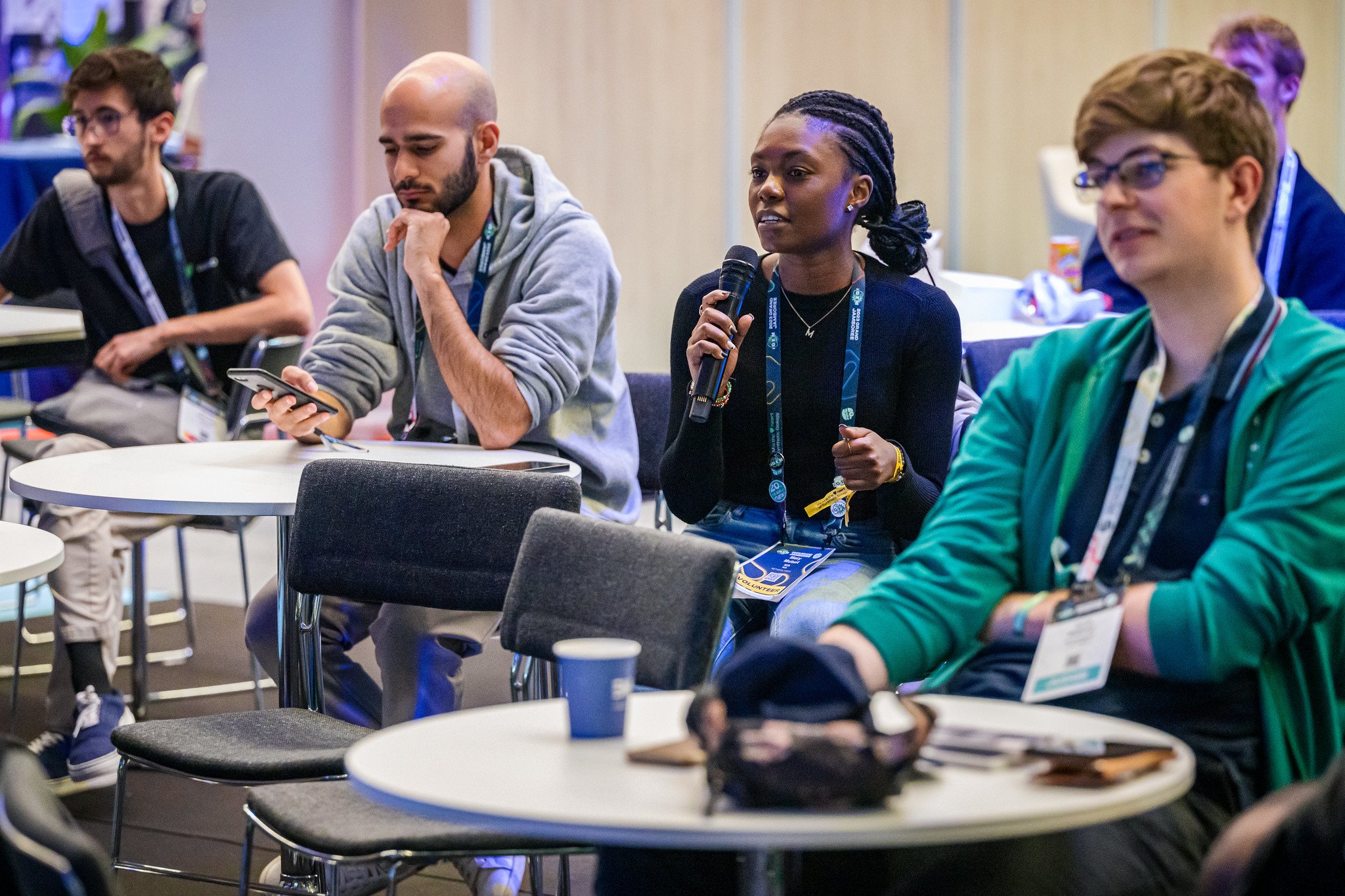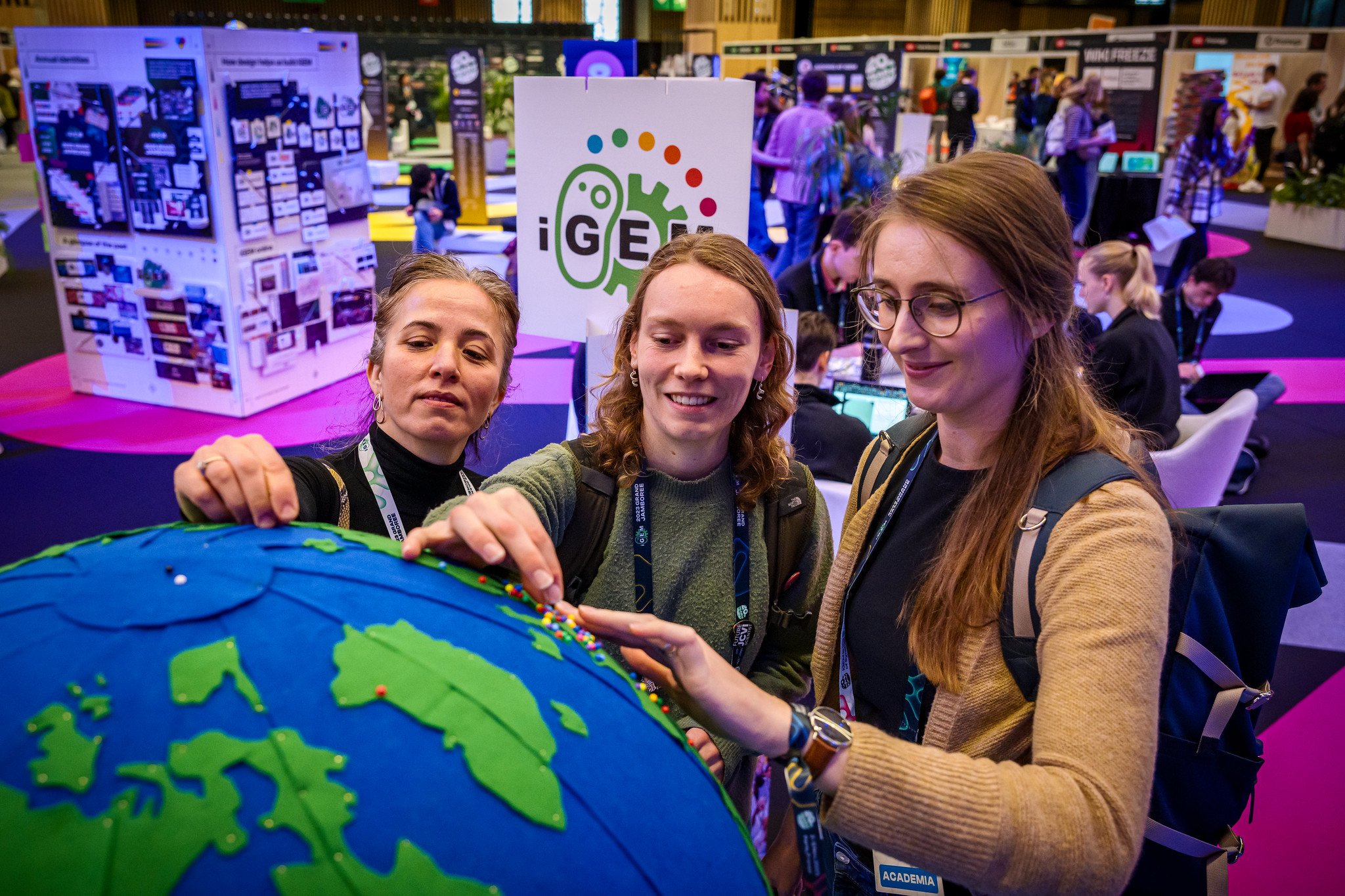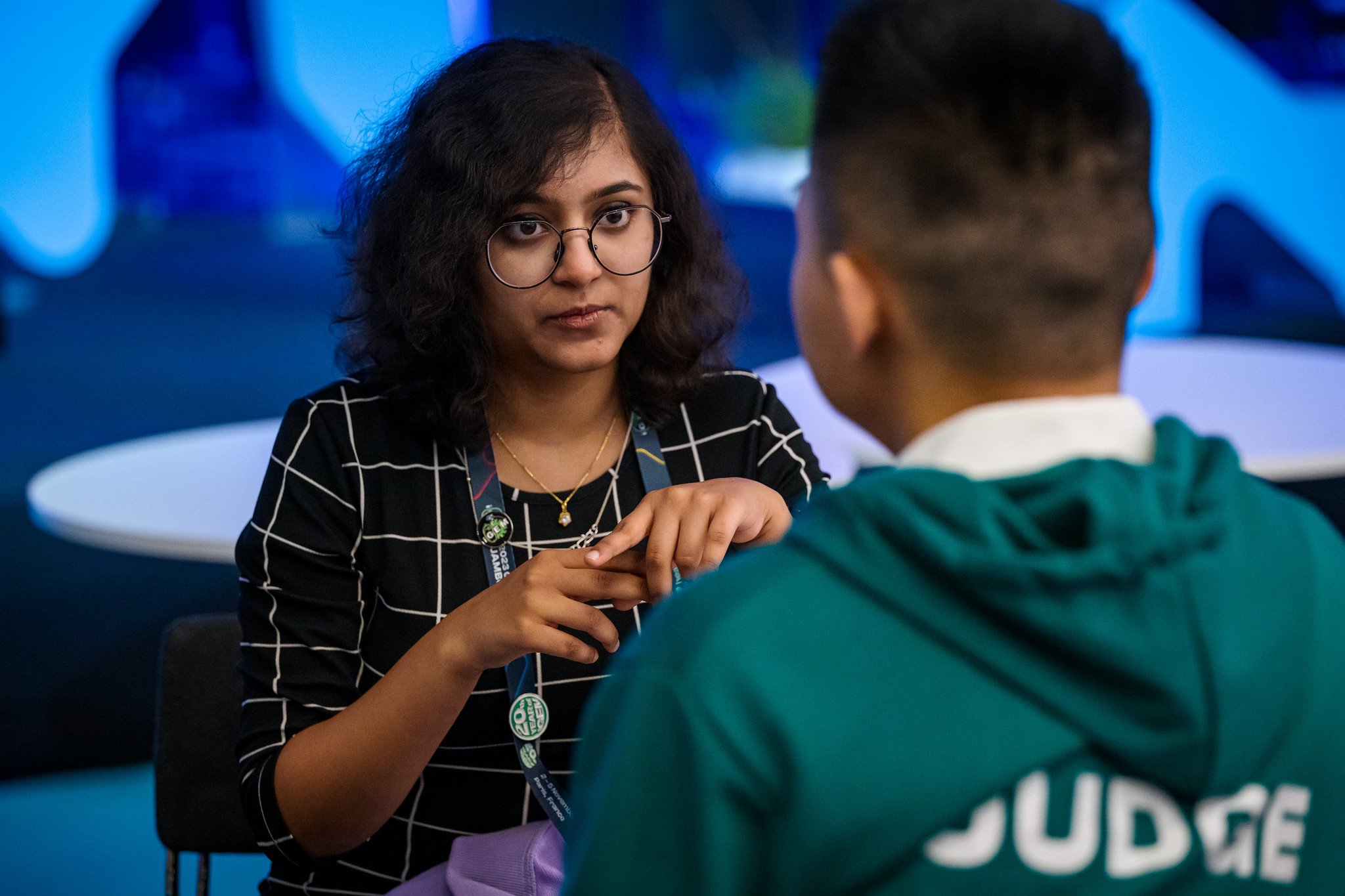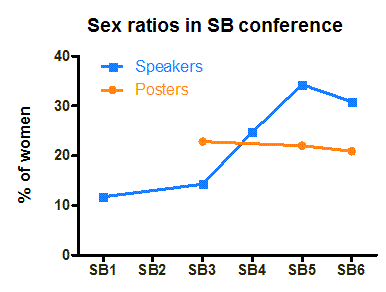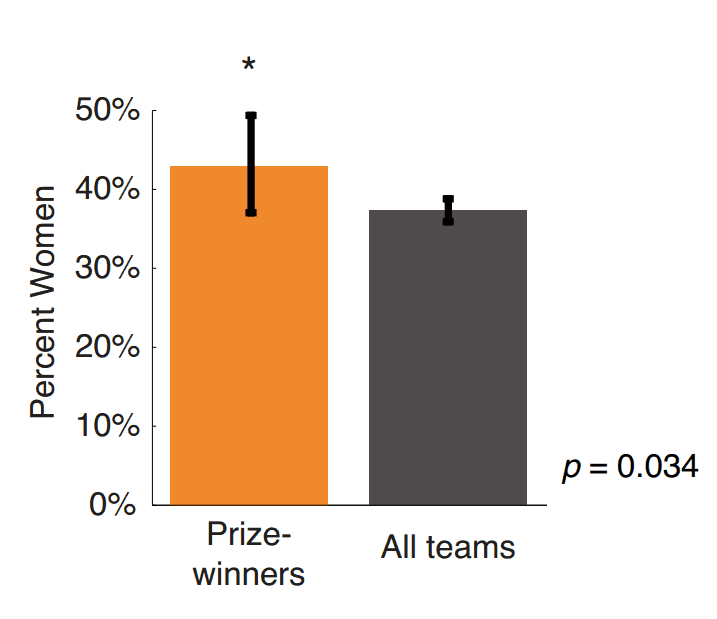iGEMers as agents of change for gender equity in STEM
by Linda Kahl and Abigail Sison
““Change will not come if we wait for some other person or some other time. We are the ones we’ve been waiting for. We are the change that we seek.””
Change happens when people learn about a problematic situation, and assume personal responsibility for acting to correct the situation. iGEM teams do this all the time as they seek to make positive change by addressing problems facing our world using the tools of synthetic biology. But the changes iGEMers seek to make are not solely changes that come about by developing new technologies, they are also changes within our own and the greater synthetic biology community.
Here, in honor of the upcoming International Day of Girls and Women in Science (February 11), we’d like to reflect on the positive changes to address gender equity within iGEM that were inspired and carried out by iGEM teams and the community members that support them.
The Gender Gap in STEM
Across all science, technology, engineering and mathematics (STEM) disciplines, a significant gender gap continues to persist, with women making up only 31% of the research and development workforce worldwide.¹
Although tremendous progress has been made towards increasing the participation of women in higher education, they must still confront gender discrimination not experienced by their male colleagues.² Women have lower median earnings than men in STEM occupations,³⁻⁴ are credited less for their scientific publications than men,⁵ and are less likely to advance to senior academic or executive positions.⁶⁻⁷
The field of synthetic biology is no exception, with a minority of companies in the synthetic biology industry led by women (only 14% in 2018).⁸ Yet, synthetic biology is younger than other STEM fields that have historically suffered from gender inequities.
““Because synthetic biology is young, its members have a chance to build a field that addresses some pervasive gender inequities in science, technology, engineering and mathematics (STEM). Doing so demands recognizing the problem, accepting responsibility and choosing to improve the situation.” ”
The iGEM Paris Bettencourt Gender Study
In 2013, the Paris Bettencourt iGEM team was aiming to cure tuberculosis (TB) by applying the tools of synthetic biology. In the course of their literature research and interviews with specialists, they learned that there was a gender bias in TB epidemiology due to biological and social causes. That realization led them to self-reflect on their own group and surrounding community, giving rise to their investigation into gender representation within iGEM and the synthetic biology research community.
They conducted a study evaluating the relative number of males versus females at various levels in synthetic biology research labs, conferences, and publications, and utilized the iGEM website to create an extensive database of all reported information, including gender, for 600+ iGEM teams over 5 years. They performed statistical analyses using this data, and showed, among other results, that success in iGEM can be correlated with gender diversity.
Sex ratio in SB conferences. The proportion of speakers and poster presenters at SBX.0 conferences who are women. Data was gathered on-line from available programs. (Paris Bettencourt Gender Study, 2013)
Gender balance and success in iGEM. The proportion of women in teams that have won prizes in iGEM compared to the proportion in teams over all. There is a significantly higher proportion of women in teams that win prizes (p=0.034). (Paris Bettencourt Gender Study, 2013)
Sex ratios in iGEM according to categories of people participating. The gender balance of students, Supervisors and Judges in iGEM collegiate competitions. Supervisors are taken as the combination of advisors and instructors due to variations on how individual teams differentiate between them. Bars are 95% confidence intervals. (Paris Bettencourt Gender Study, 2013)
More than merely reporting their results, the Paris Bettencourt team made a number of recommendations for iGEM to become a leader in preparing the new generation “to finally get rid of the gender inequality in science.” Importantly, their work motivated many people within the iGEM community to take personal responsibility for making changes to improve gender equity within iGEM.
Ten years into the journey
iGEM is committed to being fully inclusive to all members of its community. Over the last 10+ years, with the help of community members, iGEM has taken a number of steps to improve diversity throughout all of its programs, including the iGEM Competition and Grand Jamboree.
These are some of the steps we’ve experimented with over the years:
Actively recruiting female and non-binary iGEM judges,
Forming a Diversity & Inclusion Committee to help inform and advise on ways to improve diversity in our community,
Creating the Inclusivity Award to recognize excellence among teams to include people with diverse identities in scientific research,
Recommending that iGEM teams should be gender-balanced, having approximately as many women as men on a team,
Working with iGEM teams to help improve gender-sensitive issues in their projects,
Providing lactation rooms at the Jamboree,
Providing child care at the Jamboree,
Designating gender-neutral restrooms at the Jamboree.
Through efforts such as these, iGEM has come closer to gender equality. In 2023, females made up just over 50% of student team members, and exceeded the number of males serving as student team leaders.
Great progress has also been made in increasing the proportion of female Supervisors to 36.7% and female Judges to 42.4%, nearly double that observed in 2013. Interestingly, closer examination of those serving as Supervisors reveals that a greater proportion of females serve as Advisors and Instructors, and fewer females occupy the roles of Secondary or Primary PI. In fact, only 25% of those in the Primary PI role were female.
Students are leading the charge in achieving gender equity among iGEM team members. The efforts made by iGEMers, and the resulting improvements in gender equality at iGEM, serve as evidence that change is possible and that continued awareness and efforts are needed to reach gender equity at all levels.
Clearly, students are leading the charge in achieving gender equity among iGEM team members. Several resources are available to support iGEM student team members as they work to create inclusive and diverse teams and projects, including:
There is still more work to be done to improve gender equity, particularly at the level of Primary PI. It is important to keep in mind that achieving gender equity in STEM fields is a long term process, and that systemic changes beyond iGEM will be necessary to fully support female and non-binary people as they move forward in their lives and careers.
There is still more work to be done to improve gender equity, particularly at the level of Primary PI. It is important to keep in mind that achieving gender equity in STEM fields is a long term process, and that systemic changes beyond iGEM will be necessary to fully support female and non-binary people as they move forward in their lives and careers. The efforts made by iGEMers, and the resulting improvements in gender equality at iGEM, serve as evidence that change is possible and that continued awareness and efforts are needed to reach gender equity at all levels.
Become an agent of change
In 2013, a single team brought the problem of gender inequality in synthetic biology to the attention of the iGEM community. Their actions inspired many people to assume personal responsibility for making changes to promote gender equality, and we are seeing the results of those changes today. More iGEM teams have since taken on the challenge of improving diversity and confronting bias within their own team and projects. Many of these teams have looked beyond gender equality to promote diversity and inclusivity for other under-represented groups. Check out some inspiring examples here.
How will you become an agent of change for promoting diversity and inclusivity? We encourage you to consider this question as you develop ideas for your iGEM project and Human Practices work. You might also consider selecting the Inclusivity Award as one of the special prizes that could be awarded to your team. There are also opportunities to get involved with initiatives such as WiSTEM (Women in STEM) and other efforts within the iGEM Community.
We look forward to seeing more progress towards diversity and inclusivity in synthetic biology led by iGEM teams in 2024 and beyond. If you have thoughts or suggestions on this topic you would like to share, please reach out to us at hq [AT] igem [DOT] org.
References:
1 UNESCO (2023) International Women’s Day: New factsheet highlights gender disparities in innovation and technology [Link]
2 Bloodhart et al. (2020) Outperforming yet undervalued: Undergraduate women in STEM, PLoS ONE 15(6): e0234685 [Link]
3 Prathi Seneviratne (2022) Are Women Reaching Parity with Men in STEM?, EconoFact [Link]
4 National Girls Collaborative Project (2023) STEM Statistics: Workforce [Link]
5 Ross et al. (2022) Women are credited less in science than men, Nature 608: 135–145 [Link]
6 McKinsey & Company (2022) Repairing the broken rung on the career ladder for women in technical roles [Link]
7 Society of Women Engineers (2021) Global STEM Workforce, 2021 [Link]
8 Entrepreneurship (2018) Why biotech is failing women and how we can do better, SynBioBeta [Link]
9 Pablo Schyfter (2020) Gender in synthetic biology: problems and potential, EMBO Rep. 21(6): e49049 [Link]



